Community
1. Policy and Basic Approach
The economic activities of companies, such as business operations and raw material harvesting and processing, have a significant impact on local communities. Accordingly, the social responsibility of companies is becoming increasingly important.
Sojitz recognizes that coexistence with local communities is critical as we conduct our businesses. We have therefore set “local communities” as one of our Materiality (Key Sustainability Issues). By promoting businesses that grow together with local communities and working to reduce the environmental and social impacts of our activities, we aim to realize businesses that develop and grow alongside local communities. We will communicate regularly with local communities to pursue sustainable business, work to solve issues with local communities, and support education initiatives for future generations.
Sojitz’s contributions to communities include those conducted through our business activities and those conducted through social contribution activities.
1-1. Mine Closure: Policy and Basic Approach
In its mine development and operation business, Sojitz gives due consideration to environmental protection, health and safety management, and contribution to local communities. Mine development entails various risks, but it is our policy to proceed with projects only after internally verifying that sufficient pollution and accident prevention measures are in place. This allows us to prevent risks before they materialize. Even after the mine is in operation, we work to ensure that it operates continuously with thorough safety and health management processes.
We implement thorough health and safety practices in order to ensure sustainable mining operations. We carry out the necessary rehabilitation activities and other maintenance measures for all mines, both while in operation and during the mine closure process, in order to reduce environmental impact and promote environmental conservation.
1-2. Social Contribution Activities: Basic Approach
The Sojitz Group Corporate Statement states that “Sojitz Group creates value and prosperity by connecting the world with a spirit of integrity.” Sojitz Group aims to realize a sustainable society based on this statement. As members of society, each individual employee will strive to address social issues through Materiality (Key Sustainability Issues)-based activities.
Read more
2. Goals and Targets
2-1. Medium-term Management Plan 2026 ―Set for Next Stage―
Sojitz has set three areas of focus in Medium-term Management Plan 2026 ―Set for Next Stage―. We expect that each area will contribute to communities, and we will deepen our efforts to this goal.
Strategic focus areas : Essential infrastructre
Strategic focus areas : Food value chain
Strategic focus areas : Energy and materials solutions
2-1-1. Medium-term Management Plan 2026 ―Set for Next Stage―
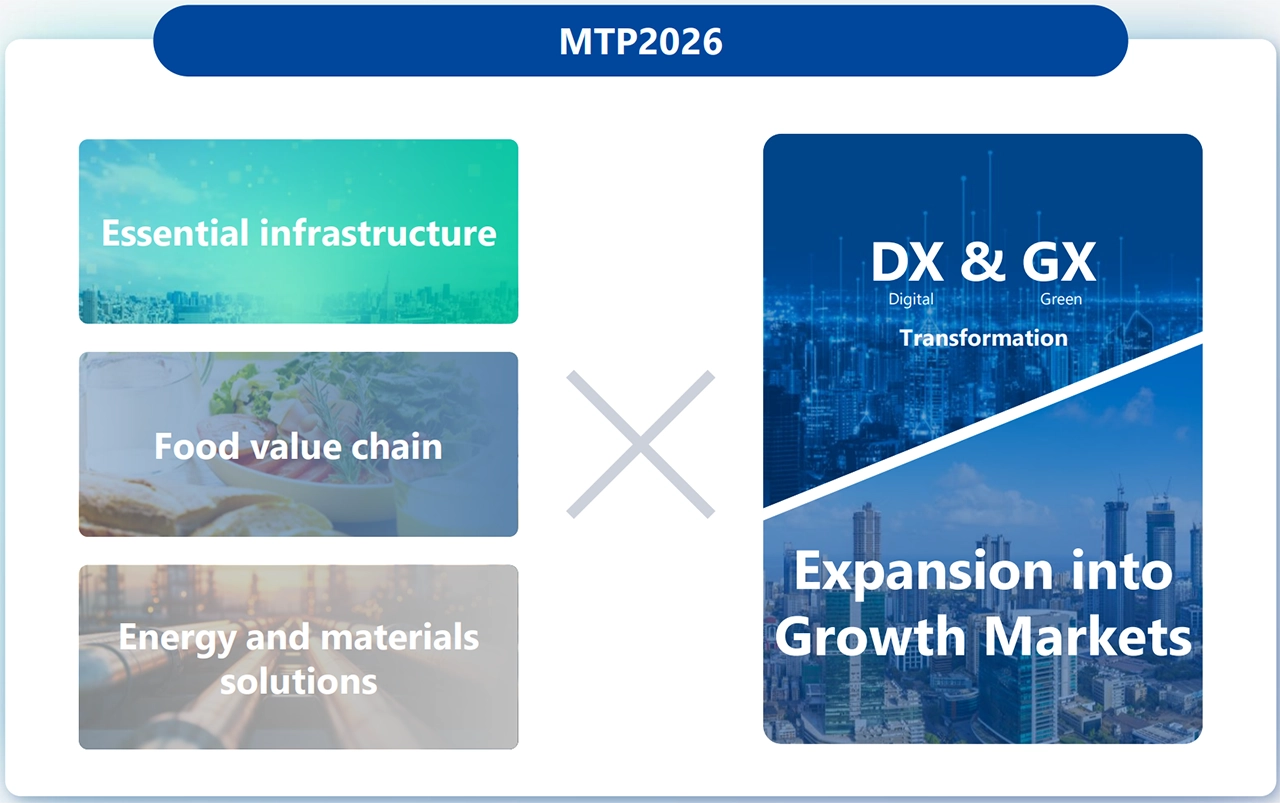
Read more
3. Systems
3-1. Risk Management Systems
3-1-1. Managing Environmental Risk for New Investment & Loan Projects
-
Prior to deliberating on new investment and loan projects, we require the department applying for investment and loan approval to complete an “Environmental and Social Risk Checklist.” Using the checklist, the department confirms that they have conducted the required due diligence and taken all necessary measures to deal with potential risks, such as impacts on local communities and labor safety.
-
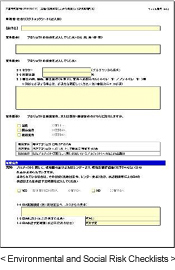
3-1-2. Monitoring Existing Businesses
Through external and internal analysis, Sojitz Group (including consolidated subsidiaries and equity holding companies), in cooperation with business partners, identifies business fields that pose a high risk to local communities, and identifies where environmental and social issues are generally prone to occur throughout entire supply chains from upstream to downstream. We then investigate the supply chains of Sojitz Group’s businesses to confirm where those points exist. Based on the opinions of third-party experts, we implement the PDCA cycle for actions taken to address risks. We will also strive to ensure that awareness of risk remains high, and we plan to strengthen our efforts to identify new risks.
In addition, Sojitz Corporation implements its environmental management system (EMS) in accordance with ISO14001, the international standard for environmental management. Sojitz also monitors company initiatives for preventing pollution.
4. Initiatives
4-1.Overseas Industrial Park Business
To support Japanese companies in setting up overseas operations, Sojitz Group is focusing on the industrial park development business, mainly in Asia. In this business, we not only develop and sell industrial parks, but also provide reliable basic infrastructure such as electricity, water, and sewage systems, and are expanding and enhancing various services, including logistical and IT support, for companies entering the market. In addition, we play a part in the economic development of relevant countries through job creation and technology transfer. Through the continuing expansion of this business, we will contribute to the growth of industry in these countries.
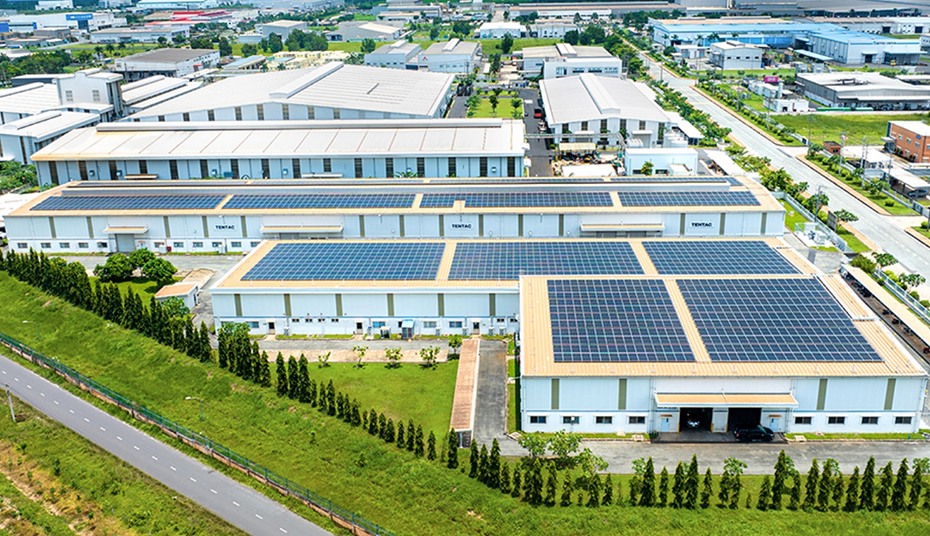
4-2. Participation in Operations of an International Airport to Aid Sustained Development in Palau
Palau receives about 130,000 tourists annually, and with this number on the rise, the country’ s sole international airport, Palau International Airport has grown in importance. To redevelop this national-level transportation infrastructure, Sojitz set up Palau International Airport Corporation together with the government of Palau in August 2017, through an intermediate holding company established jointly by Sojitz and Japan Airport Terminal Co., Ltd. The construction project for the renovation and expansion of a new airport facility began on April 14th, 2019, and the project was completed in May 2022. The grand opening ceremony to celebrate completion of the new terminal was held on May 8th, 2022.
We will leverage our partner company's airport industry knowledge and network, as well as their expertise in managing passenger terminals to enrich commercial facilities and improve passenger services and convenience. We will also take an active role in making policies to promote tourism and strive to contribute to sustainable economic and social development in Palau, where tourism is the key industry.
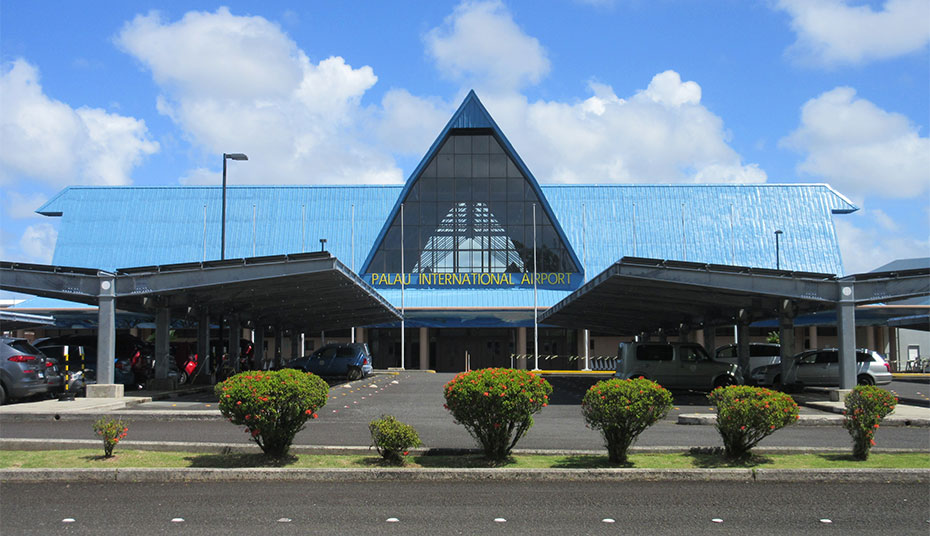
4-3. Indian Railway Project
Sojitz is working to construct a dedicated freight corridor between Delhi and Mumbai together with India’s largest general contractor. The railroad is expected to contribute to India’s economic development by transporting cargo between Delhi in the northern part of the country and the city of Mumbai in the western part of the country, which is undergoing rapid economic growth. In addition, more than 250 Japanese companies have sites in the vicinity of the planned route, and the corridor is expected to contribute to the local business of Japanese companies.
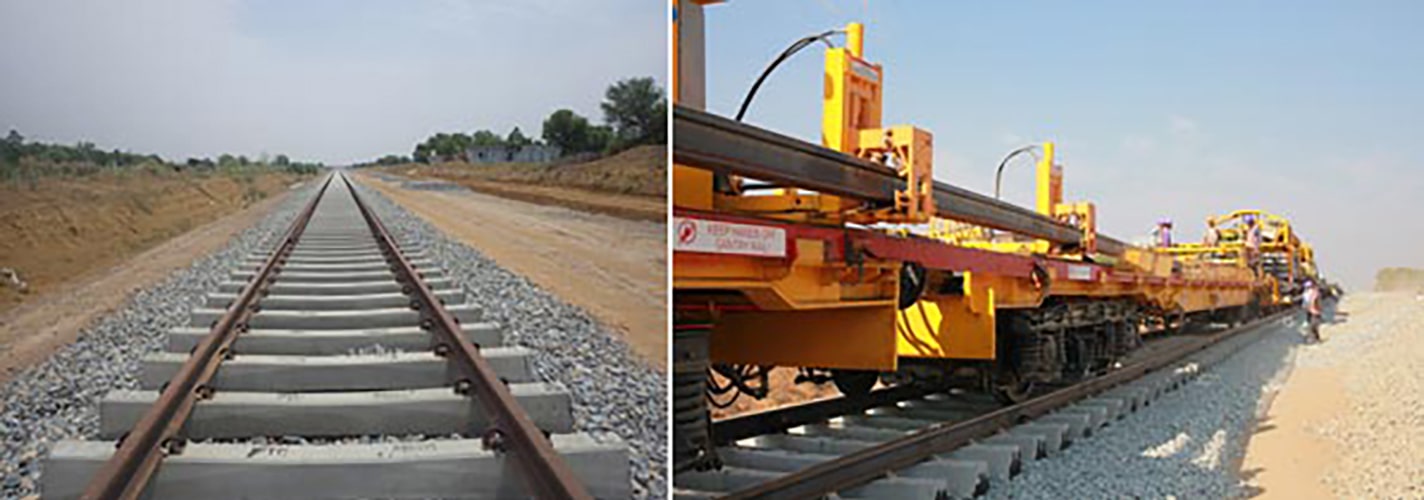
4-4. Hospital Projects Turkey and Australia
4-4-1. Turkey Hospital Project
Sojitz is involved in the management of a hospital complex in Turkey via a wholly owned subsidiary. Sojitz manages the Ikitelli Integrated Health Campus (Ikitelli IHC), located in Istanbul, Turkey, through an operating company established as a joint venture with Rönesans Group, a major Turkish construction conglomerate. The Ikitelli IHC has a capacity of 2,682 beds and is one of the largest single hospital facilities worldwide that is managed in part by a Japanese company.
In response to Turkey’s hospital bed shortage, the Turkish Ministry of Health is planning to build 40,000 beds worth of public hospital facilities through public-private partnerships (PPP). As an integrated health campus, Ikitelli IHC includes a general hospital, a cardiovascular hospital, an oncology hospital, a women’s hospital, a children’s hospital, and a neurology and orthopedics hospital. This makes it one of the largest projects undertaken as part of the Ministry of Health’s initiative. The hospital serves as a last line of defense to prevent the collapse of Turkey’s healthcare system.
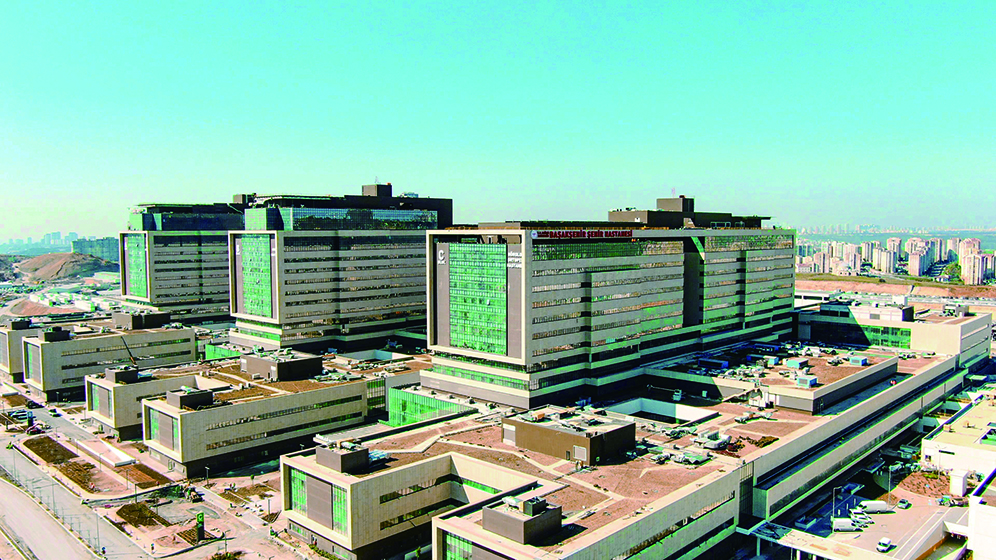
4-4-2. Australia Hospital Project
Sojitz is currently involved in a hospital project in Australia. A consortium was established with equity ownership split 30% to Sojitz Group and the remaining 70% to Australia’s Plenary Group to deliver the New Footscray Hospital project located in Melbourne, Victoria. The hospital is scheduled to open in 2025, with a total project cost estimated at AUD 1.5 billion (JPY 120 billion), and will be one of the largest single health infrastructure investments in the state of Victoria. The project is a public-private partnership, and the project partners concluded a long-term contract with the Victorian Government for the financing, design, construction, and operation of the facility. The New Footscray Hospital will address the needs of the growing population in Melbourne’s western suburbs, ensuring an adequate number of beds for local residents and contributing to patient intake.
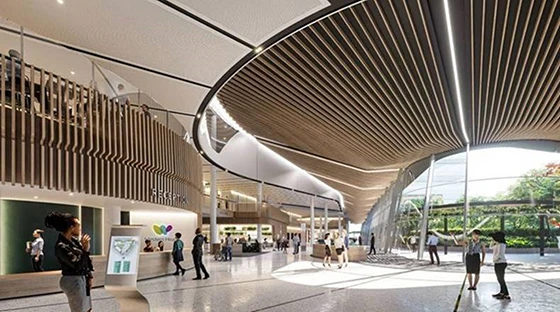
Read more
Turkey Hospital Project
Sojitz Opens One of the World’s Largest Hospital Complexes in Turkey|News Room|Sojitz Corpration
Australia Hospital Project
Sojitz Joins Hospital Project in Australia|News Room|Sojitz Corpration
5. Social Contributions
5-1. Support for Reconstruction after the East Japan Earthquake through Our Business Activities
SOFCO Seafoods Inc.’s Otsuchi plant in Iwate Prefecture suffered large-scale damages in the disaster and was forced to suspend its manufacturing operations. With the support of its affiliates, SOFCO built a new plant in Kamaishi and resumed operations from March 2012. In addition to revitalizing the regional community, rebuilding the SOFCO plant has contributed to reconstruction and job creation on the coast, where the fishing industry is the main industry. SOFCO is working to rebuild its business, which is centered around its main product of salmon flakes.
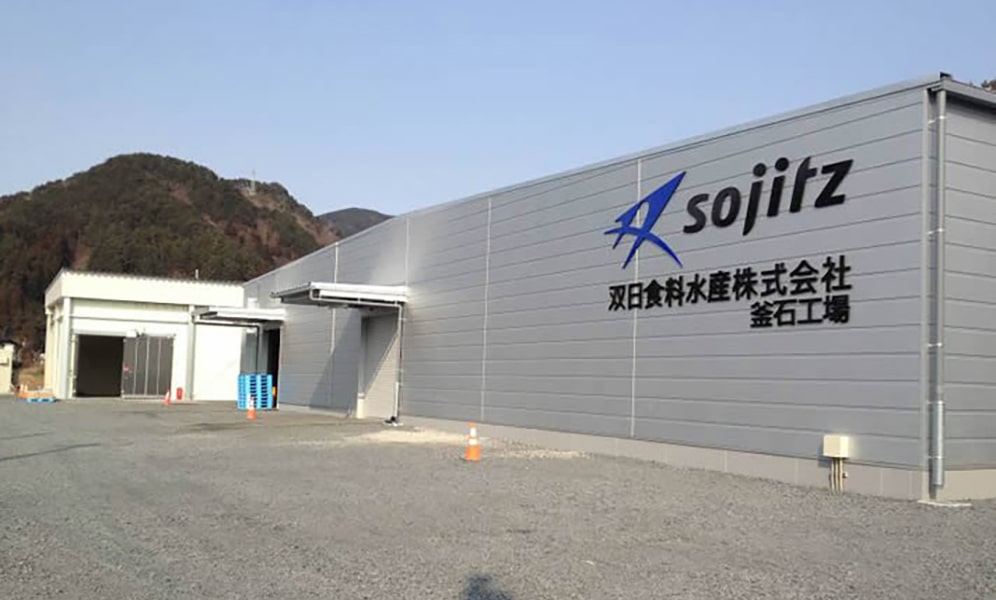
5-2. Other Social Contribution Activities and Disaster Relief
Below are examples of Sojitz’s social contribution activities and disaster relief efforts.
Read more
6. Performance
6-1. Disaster Relief Activities and Donations
| Disaster (Time of occurrence) | Donations (*) |
|---|---|
| Relief Aid for Damage Caused by Typhoon Yagi in Vietnam (September 2024) | Donated $10,000 |
| Relief Aid for Earthquake Damage in Taiwan (April 2024) | Donated ¥5 million, plus NT$ 50 thousand from Sojitz Taiwan Corporation |
| Relief Aid for Earthquake Damage in the Noto Peninsula (January 2024) | Donated ¥10 million |
| Relief Aid for Earthquake Damage in Morocco (September 2023) | Donated ¥5 million |
| Relief Aid for Earthquake Damage in Turkey (March 2023) | Donated ¥10 million |
| Relief Aid for Flood Damage in Pakistan (November 2022) | Donated ¥3 million |
| In-house employee fundraising for emergency COVID-19 relief conducted at workplace vaccination sites and matching contribution donated by Sojitz (2021) | Sojitz Group employees donated ¥990,957 (with Sojitz matching the donation amount) |
| Relief Aid for Damage Caused by the July 2020 Kyushu Floods (July 2020) | Donated ¥5 million |
| Relief Aid for Damage Caused by Typhoon Hagibis (October 2019) | Donated ¥5 million |
| Relief Aid for Sulawesi Earthquake and Tsunami (October 2018) | Donated IDR 500 million (about ¥3.75 million) together with Sojitz Indonesia |
| Relief Aid for Earthquake Damage in Eastern Iburi, Hokkaido (September 2018) | Donated ¥3 million |
| Relief Aid for Heavy Rain Damage in Western Japan (July 2018) | Donated ¥10 million |
| Relief Aid for Earthquake Damage in Kumamoto (April 2016) | Donated cash, drinking water and other supplies totaling ¥10 million on behalf of the Group |
| Relief Aid for Areas Damaged by Tropical Storm Etau (September 2015) | Donated ¥1 million |
| Assistance for Earthquake in Nepal (April 2015) | Donated ¥1 million |
| Assistance for Earthquake Stricken Areas in Yunnan Province, China (August 2014) | Donated ¥1 million |
| Relief Aid for Typhoon Damage (Typhoon Haiyan) in the Philippines (November 2013) | Donated ¥10 million on behalf of the Sojitz Group |
| Relief Aid for New York City (for Victims of Hurricane Sandy that Hit the United States) (November 2012) | Donated $50,000 (equivalent to ¥4.2 million) on behalf of the Group |
| Thailand Flood Damage (August 2011) | Donated cash and relief supplies totaling ¥10 million together with Sojitz Asia and Sojitz (Thailand) |
| Great East Japan Earthquake (March 2011) | Donated ¥100 million |
| Christchurch earthquake (February 2011) | Donated ¥1 million together with Sojitz New Zealand |
| Brazil Flood Damage (January 2011) | Donated ¥3 million together with Sojitz do Brasil |
| Queensland, Australia Flood Damage (January 2011) | Donated A$100 thousand (about ¥8.3 million) together with Sojitz Australia |
| China Landslides (August 2010) | Donated ¥1 million together with Sojitz (China) |
| Pakistan Flood Damage (July-August 2010) | Donated ¥1 million |
| Earthquake in Qinghai Province, China (April 2010) | Donated ¥1 million, plus ¥200 thousand from employees of Sojitz (China) |
- Cash donations are given to the Red Cross in each country and to NGOs working in the disaster areas.
